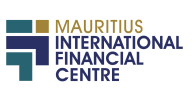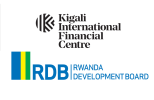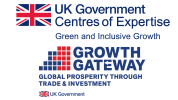Future Trends in African Investment Landscape
Africa, the world’s second-largest continent, is becoming a hotbed for investment.
Its vast resources, growing population, and untapped markets present unique opportunities.

Yet, investing in Africa is not without its challenges. Political instability, infrastructure gaps, and regulatory issues can pose significant risks.
This article delves into the current and future trends in the African investment landscape. We’ll explore key sectors, geopolitical dynamics, and specific case studies like property investment in South Africa.
We’ll also discuss the strategies of global powers like China and the USA in Africa.
Whether you’re an investor, a business strategist, or simply curious, this article will provide valuable insights into the exciting world of African investments.
The Current State of Investment in Africa
Africa is increasingly seen as the next big growth market.
Its economic potential is driven by a combination of factors.

A young and rapidly growing population is one. This demographic trend is creating a burgeoning consumer market.
Another factor is urbanization. As more people move to cities, demand for infrastructure and services increases.
Political stability also plays a role. Countries with stable governments tend to attract more investment.
Finally, Africa’s abundant natural resources continue to draw investors from around the world.
Key Sectors Attracting Investment
Several sectors in Africa are attracting significant investment.
Technology is one. The rise of tech startups and the digital economy is transforming the continent.
Agriculture is another key sector. With vast arable land, Africa has the potential to become a global food basket.
Renewable energy is also gaining attention. Africa’s abundant sunshine and wind make it ideal for solar and wind power generation.
Finally, the real estate sector, particularly in urban areas, is seeing increased investment. This is driven by urbanization and a growing middle class.
The Role of Political Stability and Infrastructure Development
Political stability is a key factor in attracting investment.
Investors prefer environments where the rules of the game are clear and unlikely to change abruptly.
Infrastructure development also plays a crucial role.
Good infrastructure, such as roads, ports, and electricity, can significantly reduce the cost of doing business.
Property Investment in South Africa: A Case Study
South Africa presents a unique case in the African investment landscape.
It’s one of the continent’s most developed economies.
Property investment here has shown promising trends.

The real estate sector has been buoyed by both local and foreign investors.
Urbanization and Demand for Property
Urbanization is a key driver of property demand in South Africa.
As more people move to cities, the need for housing increases.
This trend is not unique to South Africa.
It’s a phenomenon seen across many African nations.
Geopolitical Dynamics: China and USA in Africa
The investment landscape in Africa is also shaped by geopolitical dynamics.
China and the USA are two major players.
Their investment strategies in Africa differ significantly.

This has implications for the future of investing in Africa.
China’s Investment Strategy in Africa
China’s approach to investing in Africa is largely infrastructure-focused.
They invest heavily in roads, railways, and ports.
This is often tied to resource extraction.
China’s strategy has been both praised and criticized.
The USA’s Approach to African Investments
The USA, on the other hand, emphasizes private sector engagement.
They also focus on trade partnerships.
Their approach is more diversified than China’s.
The USA’s strategy also has its own set of challenges and opportunities.
Risks and Challenges of Investing in Africa
Investing in Africa comes with its own set of risks and challenges.
Regulatory issues can pose significant hurdles.
Market volatility is another concern for investors.
Understanding these risks is crucial for successful investing.
Mitigating Investment Risks
Risk mitigation strategies are essential when investing in Africa.
Good governance and transparency can boost investor confidence.
Understanding cultural nuances can also be beneficial.
Finally, forming local partnerships and gaining local knowledge can help mitigate risks.
Conclusion: The Future of Investing in Africa
The future of investing in Africa looks promising.
The continent’s potential as a growth market is undeniable.
However, understanding the unique challenges and risks is crucial.
With the right strategies, Africa can offer rewarding investment opportunities.













































